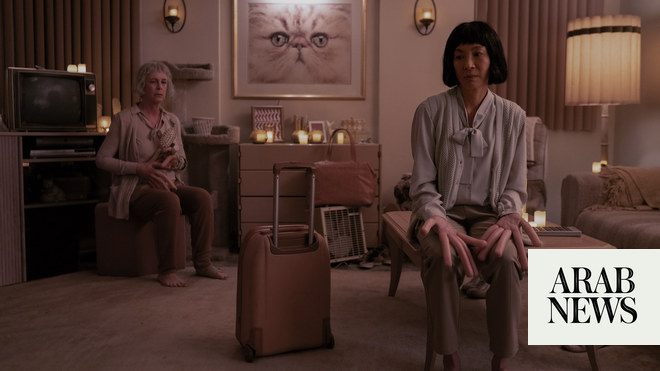
“No you get it. It’s your turn.”
“Fuck you, I’m telling you to get it.”
A row in the Loaded office is so rare I put down the article I am editing and edge round my desk, which is covered in vodka bottles from a photoshoot, and make my way across my room.
On the wall is a large Scarface poster. Next to it is a clipping of a newspaper article highlighting “the 10 traits of a social psychopath”. Someone has placed a red tick next to each entry and stuck it on my door.
At the far end of the sofa is a pile of brand-new outdoor wear that our fashion department swagman Reece has blagged. Opposite my office, the four-man art department are all faces to computer screens, laying out pages and calling in photographs. Their area has two broken fans hanging off the desk, there are piles of our latest issue with Frank Skinner on the cover, and freshly used poppers bottles are scattered across the floor.
A meeting table is covered in more than 40 boxes of breakfast cereal from our recent Breakfast Cereal World Cup.
Elsewhere in a hidden corner someone is emptying a bag of cocaine wraps, opening each and scraping some of the white powder into one bigger wrap. He puts the tightly folded new, smaller wraps back in the bag and the larger wrap of siphoned overmatter into his wallet.
Across the office in the subs’ room there’s a burble of low-volume chat where people are actually working. It is the engine room of the magazine, the reason it comes out on time every month.
On the office floor, a portable TV with a video player is playing a soon-to-be-released song called Wannabe by a new band called Spice Girls. The record company wants us to go to Japan with the band, who they think are “very Loaded”.
The source of the raised voices is the writers’ area, where three staff members are rowing about whose turn it is to buy champagne from the off-licence just 100 yards away.
I watch in disbelief and think that one day I will look back on this chaos, this second childhood, and wonder if it all actually happened.
Outside are two cars waiting to drive five of us to Heathrow to fly to New York, for no other reason than that I now have a company credit card and as soon as it arrived we decided we should do a travel story there. Within 12 hours of this row, we will be in a Manhattan hotel room drinking vodka shots. The signature on the credit card is already virtually worn off because of the amount of assorted cocaine chop powders it has come into contact with. These include baby laxative, speed and almost certainly bath-cleaning products.
I am 28 years old and have created my perfect job editing a magazine that has exploded into public life. No one is telling us what we can or cannot do, pretty much anything we want is coming good, but who knows how long it can possibly go on?
It’s five months since Loaded launched and for me there are 31 more to go. A thousand nights of chaos await.
You know you’re getting blase about success when you’re eating sheets of acid before a Park Lane awards evening. In the two years since the launch of Loaded, we had become one of the most discussed cultural phenomena of the decade. We were more than 700 days into an exercise in childish behaviour, and things were going well. Almost too well. So by the third major publishing awards I figured that, despite the magazine’s popularity, I’d probably not be disgracing the stage any more – I just didn’t see how we could keep on winning every year. Anticipating imminent rejection, I decided to change our agenda for the night and encouraged the staff attending to take a load of blotter acid.
The A4 sheet of acid was a gift from a guy who’d needed a reference to explain his unexplained income. I’d written a letter saying he was a marketing consultant and was paid in cash. We took the acid at 6pm and the reception was due to start at 6.30. At 7pm we were still fannying around in the office when the phone went. On the other end was a reporter from the Express wanting a quote about me winning editor of the year again.
I explained that they must be mistaken as the awards hadn’t taken place yet. She said the ceremony had already started and it was assumed all entrants would be in the Grosvenor by now. Consequently the organisers had sent the results to the media. I felt my mouth go dry.
I looked across my desk at the sheet of acid. I put the phone down. “Fuck!” I explained to the others what had happened and what was about to happen. They seemed to collectively turn white and looked at the acid, then at each other, and we all shouted: “Fuck!”
We squashed ourselves into a tiny, open-topped vintage sports car, and as we went round Hyde Park Corner my body began to feel unusually uncomfortable. My limbs felt awkward and I could feel my face tingling and my teeth tapping. From the screaming, big grins and compulsive desire to wave at strangers, I guessed the others were experiencing a similar transformation. We got out at Park Lane and the first thing I did was stand by the entrance with my arms out, gathering the coats of other late arrivals rushing in. Once there was a nice pile, I walked back across the two lanes of traffic and dumped them in the tulips in the park.
The hotel’s scarlet-walled Red Bar was the worst possible place to be on acid. It looked like blood was dripping down the walls, and all we could see were repeated images of ourselves curving off into the distance in the mirrors. The more you scowled or laughed at what was going on, the more frightening it looked.
We charged through into the ballroom, which looked like a floating ocean of candles, cutlery, chandeliers, ice buckets, wine bottles and glasses.
Our bosses, Alan Lewis and Andy McDuff, looked particularly relieved to see that we’d arrived. “I’ve got good news and bad news,” I said. “The good news is a woman just rang up and told us we’ve won.”
Andy and Alan looked delighted but confused. “What’s the bad news?”
“We’ve all taken quite a lot of acid.”
For even the most patient person, any industry awards night can take ages, with disappointment and drunkenness increasing as the night goes on. My own relationship with time had disappeared. After the starter of deep-fried brie, I noticed Alan’s head had become the shape of the cheese and his face one big cubic beard. I retreated to my increasingly natural habitat at awards evenings – underneath the table.
This is where I was when they announced I had to go to the stage. I shouted up that Alan would have to go. He refused and said they were waiting for me. It seemed such a long way. By the time I got up there, I was spending a lot of time thinking about how weird my teeth felt in my mouth. I was given the award and then guided back down to the side of the stage. I’ve no further memories of that night. Many years later, a fellow editor told me he’d come across me at a table cutting out long lines of cocaine and giving them away like free magazines to anyone who wanted some. It was like this so often. If it wasn’t an awards evening it was an event, a festival, a pub or a party. It was like one of those documentaries where they lock little kids in a house for a week and leave them to it, only we were making millions of pounds in the process. And people seemed to like it.
This is an edited extract from Animal House by James Brown (Quercus, £20). To support the Guardian and Observer, order your copy at guardianbookshop.com. Delivery charges may apply.










